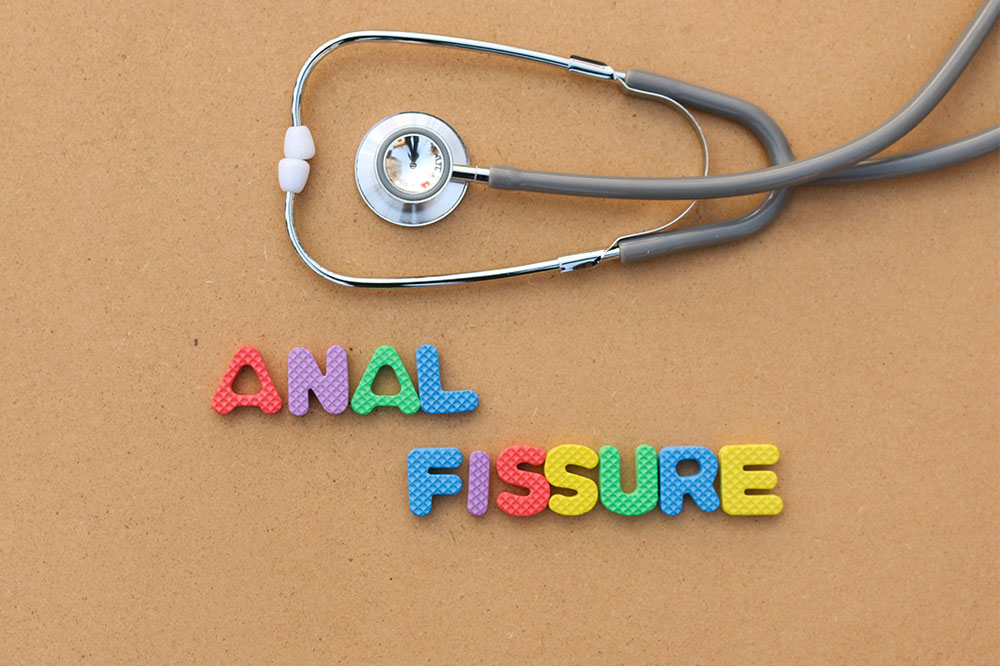
Anal fissure – Symptoms, causes, and management
An anal fissure is a common condition that can affect people of all ages. It is a tear or a cut in the lining of the anus, which can cause pain, itching, bleeding, and discomfort during bowel movements. An anal fissure develops due to excessive straining during bowel movements, hard or large stools, diarrhea, and childbirth. The fissure can also be a symptom of conditions like inflammatory bowel disease or sexually transmitted infections.
Symptoms
The symptoms of an anal fissure can vary depending on the severity of the condition. Some of the common symptoms include:
- Pain and discomfort during bowel movements
- Burning sensation after bowel movements
- Itching around the anus
- Blood in the stool
- Swelling around the anus
- Skin tags around the anus
Causes
A tear in the anal canal can develop due to the following factors:
Constipation: When one is constipated, the stool can be hard and dry, which can cause the lining of the anus to tear when straining to pass stool.
Diarrhea: Chronic diarrhea can cause irritation and inflammation in the lining of the anus, leading to a fissure.
Childbirth: During childbirth, the muscles and tissues in the anus can be stretched and torn, leading to an anal fissure. This makes anal fissures common among women after they give birth.
Anal intercourse: The friction and pressure of anal sex can cause tears or cracks in the lining of the anus.
Aging: As one gets older, the tissues in the anus become less elastic, which can increase the risk of developing an anal fissure.
Further, conditions like Crohn’s disease can increase the risk of an anal fissure.
Diagnosis
If one is experiencing symptoms of anal fissure, it is important to seek medical attention. A healthcare professional can examine the symptoms and recommend appropriate treatment. In some cases, the doctor may refer the patient to a gastroenterologist or colorectal surgeon for specialized treatment. To diagnose an anal fissure, the doctor will first conduct a physical exam and ask about the symptoms and medical history. Sometimes, the doctor may ask for additional tests, such as a colonoscopy or sigmoidoscopy, to rule out other conditions.
Treatment
Treatment for anal fissures may include changes in the meal plan, topical prescription options, or surgery in severe cases. However, the treatment plan is determined by the severity of the condition. For some, the fissure may heal on its own within a few weeks. But, for more severe cases of fissure, treatment may be required. Some of the common options are:
High fiber intake: Increasing the amount of fiber in the daily meal plan can help soften the stool and prevent constipation, which can reduce the risk of developing an anal fissure or worsening it.
Sitz baths: Sitting in a warm bath for 15–20 minutes multiple times a day can relieve the pain and help the fissure heal.
Ointments: Certain creams or ointments recommended by the doctor can help reduce pain and inflammation associated with the condition.
Botox: In some cases, getting Botox for the anal sphincter muscle can help relax the muscle and reduce pain.
Surgery: In rare cases, surgery can help repair the fissure. Here, a surgeon makes a small cut into the anal sphincter muscle to help release tension.
Prevention
One can reduce the likelihood of developing a tear in the lining of the anus through the following measures:
Following a fiber-rich meal plan: Foods that are high in fiber can prevent constipation and reduce the risk of developing an anal fissure.
Staying hydrated: Drinking plenty of water and other fluids can help keep the stool soft and prevent constipation.
Avoiding straining during bowel movements: Straining can put pressure on the anus and increase the risk of developing a tear.
Avoiding spicy foods: Spicy foods can increase the risk of developing a fissure, as they irritate the lining of the anus.
Practicing good hygiene: Keeping the anal area clean and dry can help prevent infections and reduce the risk of developing an anal fissure.
An anal fissure can affect anyone and cause pain and discomfort during bowel movements. However, it can be prevented through a few lifestyle changes. Further, if affected by a fissure, one can find options to relieve the symptoms through timely treatment. So, one should consult a doctor if they believe they are at risk of developing an anal fissure and have noticed one or more signs of the condition.




